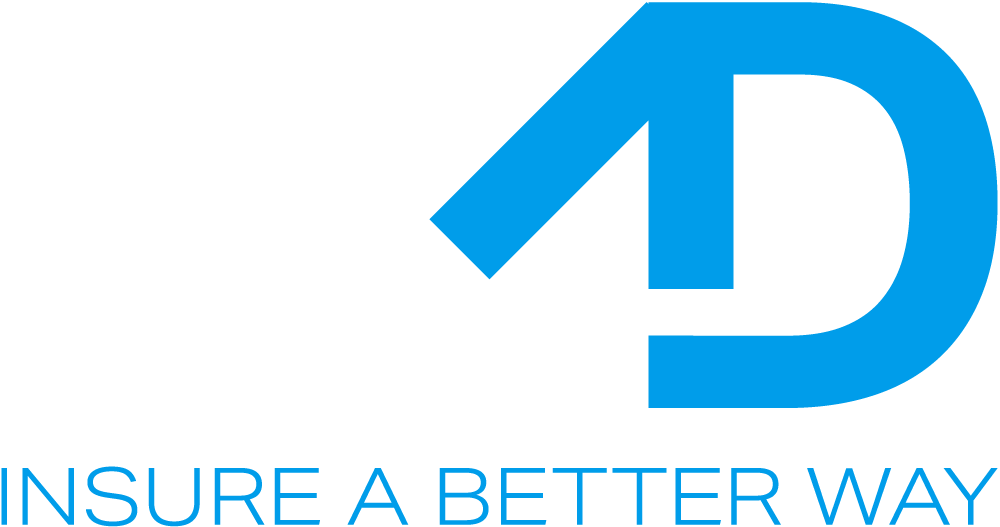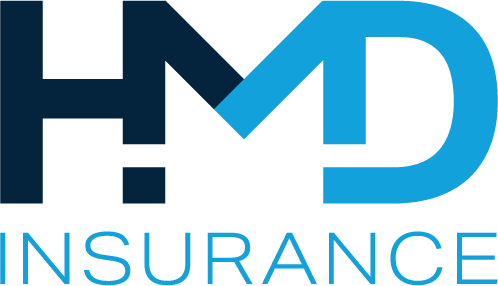
Running a small business is no small feat. Amid the day-to-day operations, hiring, marketing, and chasing payments, it can be all too easy to overlook one vital aspect that could make or break your future—business insurance. This article explores how insurance mistakes can cripple your business and what you can do to avoid them. It’s a must-read for any business owner looking to safeguard their operations, assets, and future growth.
If you’re new to entrepreneurship or refining your existing risk management strategy, understanding the gaps in your coverage could be the difference between bouncing back from a crisis or shutting your doors for good.
What Are the Most Common Mistakes Small Business Owners Make with Business Insurance?
One of the most common mistakes small business owners make is assuming that a basic business insurance policy covers all potential risks. Unfortunately, this couldn’t be further from the truth. Different industries and business models have unique exposures, and using a one-size-fits-all approach can leave significant gaps in coverage.
For example, a restaurant may need public liability insurance and contents insurance, while a consultancy firm may be more at risk without professional indemnity insurance or cyber insurance. Failing to match your insurance policies to your actual business operations can result in devastating losses when a claim arises. Insurance is essential, and making assumptions about coverage is one of the first steps towards potential failure.
Why Reviewing Your Insurance Coverage Regularly Is Crucial as Your Business Grows

As your business grows or pivots, your insurance needs evolve too. A small startup operating from home might initially need only home insurance and basic liability cover. But as the business expands—perhaps taking on staff, purchasing equipment, or opening a physical location—those needs shift considerably.
A business insurance policy that once fit your business perfectly may now fall short. The right insurance coverage must reflect the scale, scope, and structure of your current operations. Insurance providers often offer tailored insurance solutions that evolve alongside your growth. It’s wise to review your business annually with your insurance broker or insurance provider to ensure you’re not left exposed by outdated policies.
What Types of Insurance Policies Should Every Small Business Consider?
Understanding the different types of business insurance available is the first step in building a resilient protection plan. At a minimum, every business should evaluate their need for liability insurance, business interruption insurance, workers’ compensation insurance, and property insurance. Each type of insurance provides coverage for specific risks that could derail your business.
For example, public liability insurance protects businesses from third-party injury claims, while professional liability insurance helps safeguard service-based businesses against negligence claims. Cyber liability insurance is becoming increasingly critical in a digital-first world, offering coverage in the event of a cyber breach. Business interruption insurance helps cover lost income during unexpected disruptions. Having the right mix of insurance policies is essential for business continuity and peace of mind.
How Can You Avoid Gaps in Coverage When Choosing Insurance Options?

Gaps in coverage often occur when business owners either underestimate the risks their business faces or misunderstand what their policies actually cover. Insurance isn’t just about ticking boxes—it’s about truly understanding the protection each policy offers. That’s why working with a trusted insurance broker is so important. An insurance broker can help you identify weak points in your current setup and recommend tailored insurance solutions.
Insurance policies that offer extensive protection can be more affordable than many business owners think, especially when weighed against the cost of an uncovered incident. Your insurance strategy should align with your business operations, risk tolerance, and future goals. An informed insurance strategy ensures you’re not caught off guard when the unexpected happens.
Why Is It Important to Choose the Right Insurance Provider and Broker?
Selecting the right insurance provider and insurance broker is about more than just comparing insurance premiums. A good broker understands the insurance requirements unique to your industry and can guide you through the nuances of coverage for your business. Likewise, a reliable insurance provider ensures that claims are handled efficiently and fairly.
The right insurance for your business isn’t always the cheapest option. It’s the one that ensures your assets, employees, and customers are adequately protected. A knowledgeable broker will help you navigate complex policy language, ensure your coverage aligns with your business strategy, and negotiate better terms on your behalf.
What Are the Hidden Costs of Inadequate Insurance Coverage?
One of the most dangerous misconceptions small business owners hold is that insurance is an expense, rather than an investment. Inadequate insurance can lead to massive out-of-pocket costs that not only harm cash flow but could ultimately cripple your business. From legal fees and settlement costs to operational downtime and lost revenue, the financial toll can be staggering.
For example, defending a liability claim without appropriate coverage for your business could cost tens or hundreds of thousands of dollars. Similarly, failing to secure cyber insurance could leave you exposed to costs arising from data breaches and ransomware attacks. Insurance helps protect businesses from both obvious and hidden threats—the key is ensuring your policies reflect your business needs.
How Does Business Interruption Insurance Safeguard Your Business Continuity?
Business interruption insurance is often overlooked, yet it’s one of the most powerful tools in your risk management arsenal. This type of insurance provides coverage for income loss resulting from unforeseen disruptions, such as fire, flood, or a cyberattack. When your operations are forced to pause, business interruption insurance helps you keep up with fixed costs like rent, salaries, and loan repayments.
In other words, it buys you time to recover. Without it, many businesses are left financially stranded during a crisis. Business interruption insurance helps maintain your business continuity and ensures you can bounce back faster, avoiding long-term reputational and financial damage.
What Role Does Workers’ Compensation and Liability Insurance Play in Protecting Employees and the Public?
Workers’ compensation insurance is a legal requirement in many jurisdictions and provides essential coverage for employee injuries sustained during work. It protects both the employee and the employer by covering medical costs and lost wages, thereby reducing the risk of costly lawsuits. Likewise, public liability insurance protects your business from claims related to injuries or damages caused to third parties.
Liability insurance provides financial support when facing claims that could otherwise devastate your operations. It’s not just about meeting regulatory obligations; it’s about demonstrating a commitment to safety and responsibility—values that strengthen your brand and build customer trust.
How Can Cyber Insurance Help Protect Your Digital Business Assets?
Cyber liability insurance is no longer optional for businesses that operate online or store customer data digitally. With cybercriminals becoming more sophisticated, even small businesses are frequent targets. Cyber insurance offers protection against data breaches, ransomware, and other cyber threats.
This type of insurance provides support for notification costs, forensic investigations, data recovery, and even legal defence if needed. It’s a crucial part of any modern business insurance strategy, especially as online threats grow more pervasive. Don’t wait until a cyberattack exposes gaps in your protection—cyber insurance ensures you’re ready to defend and recover.
What Steps Should Small Business Owners Take to Review and Strengthen Their Insurance Strategy?
To ensure you’re not caught off guard, make it a habit to review your business insurance annually. This involves reassessing your current coverage, understanding your insurance costs, and evaluating whether your policies still align with your business operations. Business needs change, and your insurance strategy should evolve accordingly.
Consider engaging with insurance experts to conduct a risk assessment, compare insurance options, and uncover any gaps in your current protection. Insurance safeguards your business, and proactive planning is the most effective way to avoid costly surprises. Don’t hesitate to update your insurance coverage as your business expands, diversifies, or enters new markets.
Conclusion: Protect Your Business with the Right Coverage and Expert Advice
Business insurance is a critical pillar of long-term success. Overlooking gaps in coverage, underestimating risks, or relying on outdated policies are insurance mistakes that could cripple even the most promising ventures. Every business—regardless of size or industry—needs tailored, comprehensive protection that evolves as the business grows.
At HMDI, we help business owners like you safeguard your business through strategic insurance solutions designed for resilience. Our experienced brokers offer personalised guidance to ensure you have the right insurance coverage in place—so you can focus on running and growing your business with confidence.Contact HMDI today for a tailored business insurance quote and expert advice to secure your future.
FAQs
One of the most common mistakes to avoid is underestimating the level of coverage your business may require. Many owners assume that a basic policy will cover all their risks, but without comprehensive business insurance, you could be leaving major gaps in your protection. Another mistake is failing to disclose key information about your operations, which can lead to denied claims down the line.
Additionally, overlooking product liability insurance or protection for business property is another costly misstep. Not all policies are the same, so comparing options and understanding the fine print is key. Remember, the right business insurance isn’t always the cheapest—it’s the one that meets your actual business needs.
One of the major mistakes to avoid when choosing an insurance broker is selecting one based solely on price or convenience. A knowledgeable broker should offer advice tailored to your specific business, not just present cookie-cutter solutions.
Choosing a broker with limited insurance knowledge or no experience in your industry can lead to significant coverage gaps. A good broker understands the importance of insurance and helps you navigate the complexities of insurance in Australia with clarity. They’ll assess risks, recommend specific insurance solutions, and ensure your insurance needs are met as your business expands.
The first step is to review your business regularly. As your operations evolve, your insurance needs change too. For example, if you’ve recently taken on new clients, added employees, or expanded your product line, these changes impact the type and amount of insurance required for businesses.
Evaluating your risks across various business activities will help determine whether you have adequate insurance in place. From product liability insurance to comprehensive business insurance, each type of insurance is crucial in addressing different exposures. Consult an experienced broker who can help you match policies to the real-world risks your business may face.
Small business insurance differs from traditional insurance in that it’s specifically designed to address the dynamic and diverse risks faced by smaller operations. These businesses often don’t have the financial buffer to absorb large, unexpected losses—making tailored coverage more important.
Traditional policies can be too broad or too rigid. In contrast, insurance serves small businesses better when it’s flexible and adaptable to the specific business model. From covering liabilities to protecting physical assets, insurance is vital for ensuring the continuity and reputation of a growing small business.
Rising insurance costs are a real concern, but cutting coverage entirely isn’t the solution. Instead, work with your broker to restructure your policy to focus on adequate insurance while eliminating duplicate or unnecessary coverage.
Some business owners opt for higher deductibles or bundled packages for better value. It’s also essential to revisit your policy annually—your business may have changed, and certain coverages might no longer be relevant. Smart planning helps you access comprehensive business insurance without breaking the bank.
As a business expands, it typically takes on more risk—new employees, equipment, locations, or services. Failing to review your business insurance during these changes is risky. What worked for a start-up might fall short for a growing enterprise.
It’s important to ensure that your policy reflects your current exposure. For example, you may now require product liability insurance, business property protection, or coverage for business travel. The right business insurance evolves with you. Regular reassessment ensures you maintain adequate insurance that supports continued growth.
Many lenders will require proof of comprehensive business insurance before approving business loans. They want assurance that their investment is protected in case of damage, liability, or interruption to your operations.
Beyond satisfying loan requirements, the importance of insurance lies in how it helps build financial credibility and resilience. Having the right business insurance demonstrates that you’re serious about risk management and safeguarding your operations. This can enhance your reputation with lenders, partners, and clients alike.





